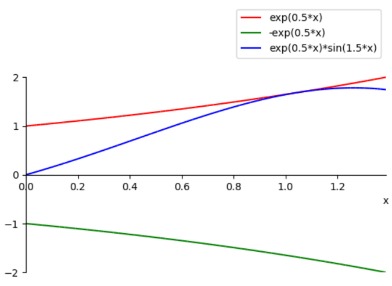GitHub Alternatives: A Review of BitBucket, GitLab, and more
Contents:

It was created by an Australian team and later acquired by Atlassian in 2010. However, the service didn’t support Git-based version control up to 2011. All those comparisons are well and good, but seeing as the two products are so similar, why does Microsoft have two?
Having a active GitHub account helps to distinguish one from others, and shows how much he has worked for open source. While GitLab is a decent solution, especially for Digital Ocean and GitLab is free for private repositories while GitHub charges. Many organizations uses GitLab while they want there codebase to be private. Bitbucket restricts you to work with only 5 people for free, GitLab.com is completely free. Bitbucket is one of the most popular while it comes at organization’s point of view. More organizations host their projects in Bitbucket compared to GitLab, due to its user friendly interface.
Unlike GitHub, it provides free private repositories, and a free open source GitLab Community Edition. But with built-in continuous integration features, and a free option for private, self-hosted servers, GitLab is starting to catch up. According to one survey, GitLab gained a 4.6% market share from 2018–19, while GitHub dropped by 0.4%. Both services offer free plans with unlimited repositories . They also limit access to advanced management, security, and compliance features in their free options.
Complete Platform vs Marketplace
If the user needs to use import the project from another platform, GitHub or Bitbucket is the perfect option for use. It is written in Python and built using the Django web framework. Just like GitHub, Bitbucket is a Git-based code hosting and collaboration tool, built for teams with best-in-class Jira and Trello integrations. Other code repositories offer CI features in their premium versions, but in GitLab, CI support is included in a free plan. Also, developers can host CI GitLab integration on their servers. The major functionality of GitHub is repository branching and forking, pull and merge requests, codebase cloning.
Now it hosts more than 38 million projects and is most commonly used by open-source communities. You may have security concerns about hosting the code for your new Nicolas Cage image hosting service in the cloud. You can get a self-hosted version of both GitHub and Azure DevOps. These actions can “automate, customize, and execute your software development workflows right in your repository”, including setting up a CI process.
Jellyfish value stream management tool busts bottlenecks – TechTarget
Jellyfish value stream management tool busts bottlenecks.
Posted: Thu, 02 Feb 2023 08:00:00 GMT [source]
GitLab has a comparatively smaller community and a limited set of third-party integration options compared to GitHub, which can be complex for new users. The primary caveat of GitLab is that most advanced features are only available for paid users, and ultimate versions can get quite expensive. Synchronization merged versions, GitHub issues, and pull requests. GitHub, GitLab, and Bitbucket are the most popular repository management services.
GitLab vs GitHub: Explore Their Major Differences and Similarities
The GitHub platform also supports the pull request feature and helps the user get the platform’s project. In the GitLab platform, there is no such feature of the pull request, and instead of this merge request feature is supported in the GitLab platform. Launchpadis a unique collaboration and hosting platform for software projects. It makes it easy to share code, bug reports, translations, and ideas across projects.
The main selling point of BitBucket is the possibility to host an unlimited number of private repositories for small teams (1-5 users). However, Bitbucket’s UI originally was not as straightforward as GitHub’s, and the functionality was underdeveloped. Now, however, the two services are getting increasingly more similar – and BitBucket’s popularity is growing. All members should know what the others are doing and freely access code written by their colleagues. It is possible with version control systems – software that allows documenting changes in code and uploading new versions.
How to Find a Blockchain Developer?
Similar to Github, Gitlab is a git based repository hosting platform. From the beginning, Gitlab wanted to distinguish itself from Github, so it created a single product for the entire DevOps lifecycle. In Gitlab, tools like Issue trackers, continuous integration and continuous delivery are part of the product.
- With GitHub, however, you’d need an app for that functionality, such as the free CI app Jenkins.
- That said, you still have the option to host a private version of GitLab on your virtual machines.
- Okay, so now we know that despite offering—at first glance—very similar services, the companies are 100% unrelated.
- Instead of significant business projects, GitLab mainly works with scientific initiatives and NGOs.
The main functionality works quickly – perhaps, the fastest among the three. Developers can quickly upload files to remote repositories and receive immediate notifications from other contributors. During that time it worked only with Mercurial , but it also has been using Git since October 2011 after being acquired by the Atlassian. It had its own advantages since Atlassian develops mainstream software tools like Jira, Trello and Confluence. Having great integration with such tools has been a great advantage for BitBucket.
You can also look at CloudBees, which is the commercial variant of Jenkins and fully integrates into the GitHub experience. But where GitHub offers a complete DevOps and DevSecOps platform, Jenkins and its CloudBees commercial solution focus only on automation and CI/CD capabilities. Very efficient in managing security and compliance standards for code, especially during pull requests, merge requests, branching, etc.
Best Code Review Tools for Developers (2023 Edition)
It’s the largest repository host with more than 38+ million projects. Some conclude that this makes GitLab the more security-minded Git platform, but GitHub also supports the same workflow. GitHub emphasizes speed, while GitLab emphasizes reliability. That’s the gist of the difference between the two cloud repository platforms. One of the crucial things that makes this happen is the automated testing tool that automatically scans code for potential security risks. Working only within GitLab, your development team can focus on pushing minor updates live multiple times per day, rather than batching them into big releases.

Developers describe Azure DevOps as «Services for teams to share code, track work, and ship software». On the other hand, Bitbucket is detailed as «One place to plan projects, collaborate on code, test and deploy, all with free private repositories». Bitbucket gives teams one place to plan projects, collaborate on code, test and deploy, all with free private Git repositories.
While GitHub is mostly about public and open-source content, Bitbucket is mostly used by enterprises and business users. Bitbucket has no navigation or desktop version available but that can be circumvented with Sourcetree. Also, the wiki documentation and first-in-class Jira integration are to be kept in mind.
It exclusively supports Git and offers a feature set that spans collaborative coding, automation, and CI/CD to project management. Second, let’s take a look at the most popular option, GitHub. For remote teams, features like sharing code snippets , editing files directly from the browser, powerful searching, or LDAP and JIRA integration make this platform the best option.
It makes it possible to collaborate and share code and keep tabs of what’s changed along the way. Even Microsoft hosts most of its open-source projects on GitHub. Git is a useful DevOps tool used for source code management. It is a free and open-source version control system, used to track changes and make working with multiple developers easier.
gitlab vs github vs bitbucket vs azure devops used to host its services on Microsoft Azure, but moved to Google Cloud Platform after Microsoft acquired GitHub. If you’re a complete beginner and new to Git, you should learn some fundamentals before picking the right option. But if you’re an experienced Git user, feel free to skip past this section. We monitor all Version Control reviews to prevent fraudulent reviews and keep review quality high. We do not post reviews by company employees or direct competitors.
Both options are great for open source projects, with GitLab offering premium features for free and GitHub offering access to a larger pool of active open source developers. Likewise, paid plans for GitHub also focus on advanced collaboration tools , as well as security and compliance features. That’s not to say that GitHub isn’t a good option for open source code, as it does offer instant access to the majority of these developers. GitHub also encourages them to contribute to open source each Friday, regularly expanding the number of public resources available. GitLab offers free enterprise plan features and up to 50,000 CI minutes for organizations or smaller teams that work on open source software.
GitHub and Atlassian Bitbucket are both mature platforms with native capabilities and third-party integrations. GitHub offers both a cloud-hosted SaaS model and a self-managed deployment model. These workflow templates are designed to meet the needs of leading teams and companies and feature a sizable integration ecosystem. You can also learn more abouthow automation and CI/CD work on GitHub in our documentation. Build what’s next with the all-in-one solution that’s beloved by developers. Go from ideation to planning, project management, security, automation and delivery with extensive native capabilities and a rich integration ecosystem.
Estimation of effort points for each issue and shared details with collaborators. One popular alternative to GitHub and GitLab is Bitbucket by Atlassian. Read on to learn how these tools stack up against one another. Lots of good things have happened to GitHub under MS, including free private repos. My private proprietary project uses GitHub , and it works wonderfully too.
Software Documentation Features
GitLab and GitHub have disparate views on an ideal coding workflow, and we’ll cover these differences in our next section. You need to use an app or third-party integration with GitHub in many cases. You can get the same result—the feature—but you need to jump through some extra hoops to get there. We’ll cover this difference in more detail later, as we pinpoint where the services differ. But you can also request and give access to other developers manually—over a LAN, for example.
Teams choose Bitbucket because it has a superior Jira integration, built-in CI/CD, & is free for up to 5 users. GitHub and GitLab are source code management platforms for developers. They help with version control, enabling developers to track and manage their changes to source code. GitHub includes a range of features and offers three pricing plans, including a free version.
Top Free Git GUI Clients for Beginners – KDnuggets
Top Free Git GUI Clients for Beginners.
Posted: Mon, 03 Oct 2022 07:00:00 GMT [source]
Gitlab provides a single interface to the whole DevOps cycle. Organizations like IBM, Sony, NASA and Alibaba are using Gitlab. GitHub is a fully online platform without any option to run a self-hosted coming under the enterprise tier.

The open https://traderoom.info/ community started to use it for code sharing. Github had more than 28 million users and hosts about 57 million repositories. Recently, Microsoft has acquired Github for a price of 7.5 Billion dollars.
Personally, even if Microsoft bought Github, I will stay on Github, because since the Microsoft era, I can have access to private repositories for free. I have access to a Kanban board which gives me a good point of view of my project. In March 2015, GitLab bought Gitorious (a Git hosting service competitor with ~820k registered users). They encouraged users to migrate to their platform and Gitorious was stopped in June 2015. Every developer, at some point used one of the three major hosting platforms, if not all three.